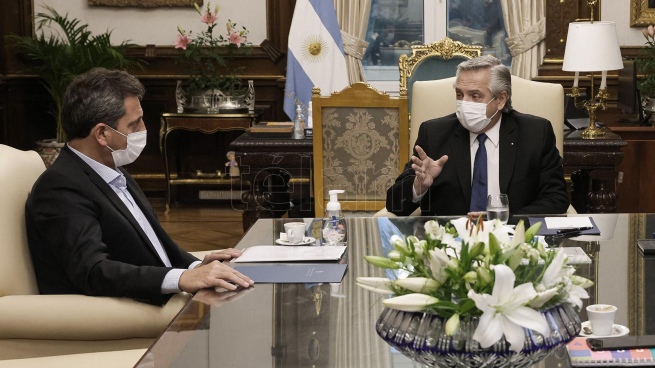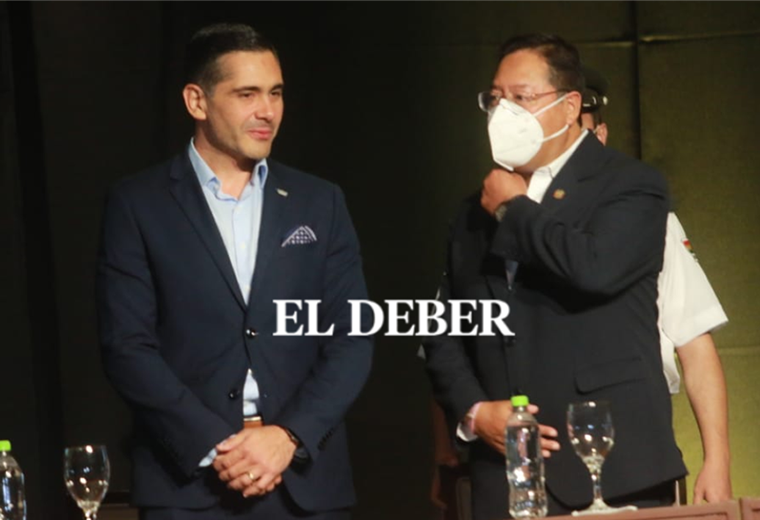Various economists have argued that the Budget project 2023 It presents goals for growth and reduction of the fiscal deficit that can be met by the Government, although they showed differences on projected inflation.
“from the macro we have a modest growth (expected at 2%), which sounds quite rational because it is very likely that there will be a limit regarding access to imports in a large part of the productive sectors,” he said. Sergio Chouza, director of the Sarandí Consulting.
He also pointed out that said goal is achievablesince it is “a reception just above the vegetative one” and does not have the “statistical drag (of the rebound registered in 2021) as it happened at the beginning of this year”.
In the same way, the economist considered the projection of primary deficit, which will be equivalent to 1.9% of GDP, against the 2.5% forecast for this year, in line with the agreement signed with the International Monetary Fund (IMF) last March.
“Fiscal convergence is promising and is an anchor. It is not a very severe objective since it is 0.6 points and with (the reduction of subsidies to) transport and energy all the work should be done,” the economist specified, emphasizing that “the vocation of the Executive is not seen as a intention to adjust through budget allocations or an expansive vocation, which would be irresponsible”.
Similarly, he was in favor of the possibility of eliminate some tax benefits -among others, the exception of the payment of Income Tax in judges-, with which, if materialized, “there could be an overcompliance in fiscal matters,” he estimated.
In this same sense, the economist of the Department of Political Economy of the Cultural Center for Cooperation, Mara Pedrazzoli, who argued that the exemption of profits from the judicial sector “is a novel aspect” and “an intelligent and at the same time challenging way to exceed the IMF’s goal in fiscal matters.”
In relation to the “tax separate” that the Government added to the budget bill, Pedrazzoli stated that “(the Government) is gambling in the sense of bringing a political discussion that no one had brought to the debate, which is the whole series of tax benefits and subsidies that certain large sectors have concentrates of the economy, such as the exemption of profits from the judicial sector, for example”.
On the other hand, the economist affirmed that “the macroeconomic assumptions are a bit more realisticsince we came with budgets with inflation of the order of 30%, when we ended up at 90%, although this budget supposes a strong but good deceleration, it also supposes a strong cooling of the entire economy”.
For Claudio Caparulo, director of the Analytica consultancy, “It is interesting that the Government puts in the discussion the subject of the tax exemptions” although it is “not very optimistic” to “advance on that” in Parliament.
For Caparulo, it is a “quite realistic budget compared to what has been seen and in accordance with compliance with the agreement with the IMF”, although he considered, in contrast to Chouza, that it is “clearly a budget adjustment”.
“There are items from several ministries that, with an inflation scenario of 60%, are going to grow below this, especially in current expenses and not so much in salaries,” he remarked, citing, as an example, the expected 37% increase in the Ministry of Tourism, as well as what is projected in Transportation and Education, among other portfolios, although he stressed that it is necessary to read the fine print of the items.
While, Alfredo Curutchet, Conicet researcherindicated that it is “a gradual fiscal adjustment” and stressed: “It is not a huge thing or a draconian fiscal adjustment.”
For its part, the chief economist of the Development Research Foundation (FIDE), Nicolás Zeollasaid that the budget is “very relevant because of the context in which it is presented.”
“We are in the middle of the third revision of the data for the second quarter of the agreement with the IMF and it is very much connected with what the budget is, because there are fiscal, monetary goals and some other issue related to the accumulation of reserves. Zeolla noted.
In turn, he pointed out as “unknowns” the fact that “How is this primary fiscal result going to be achieved? taking into account that it is going to be an electoral year and, in principle, the Government poses a political and economic challenge that is to go through it with a deepening of the reduction of the deficit”.
“This greatly limits the capacity to deploy fiscal policies and, in principle, it would be necessary to pay close attention to the forecast of subsidies, of public works and how the expansion of resources is being foreseen,” the economist pointed out.
The economist Julián Cuenca, from the consulting firm “Economy and Society” pointed out that “the first reading of the project shows a fit biasin line with what was agreed with the International Monetary Fund” last March.
“It is not something ‘violent’, in fact, public works remain at 0.3% of GDP, but any item that does not adjust by at least 60% will be below projected inflation,” Cuenca told Télam, after It should be noted that at the macroeconomic level “2% GDP growth is realistic, but inflation of only 60% seems difficult to achieve, due to tariff adjustments and the projected rise in the dollar.”
The economist also highlighted the annex presented to remove several tax exemptions to companies and sectors, whose savings would be 2.4% of GDP, according to estimates from the Palacio de Hacienda.
Where the economists expressed more doubts is in the inflation target of 60%.
“Clearly the inflation target is being underestimated since it is a very ambitious objective, while a growth of 2% is appropriate”, said Caparulo, while Chouza pointed out that “the inflation numbers are more aggressive: 35 points down is a scenario where, on the one hand, He appreciates that he has been honest, but with a “challenging” goal with the current macroeconomic restrictions.
“The budget is in accordance with what is stipulated in the agreement with the IMF. The doubt it generates in me is whether it is really going to be possible to lower inflation to 60%,” Curutchet projected, for his part, understanding “fundamental” is not “make the same mistake” of underestimating her.
Meanwhile, Zeolla maintained that “we have to see how the Government goes through this great challenge. To maintain inflation or lower it, it is very important to obtain dollars to have the external sector balanced, otherwise any type of projection of inflation is abstract”.
Pedrazzoli, on the other hand, stated that he has doubts about the feasibility of “lowering inflation by 35 points“. “But -he added- if I see a deceleration process viable and that seems to me that it is already a lot in the framework in which we are”.
Likewise, Zeolla pointed out that “there is a component of the expense that is indexed by the retirement formula, which has to do with social security assistance and the deployment of social aid, the AUH and the rest of those items that are the most substantial part of the spent”.


















